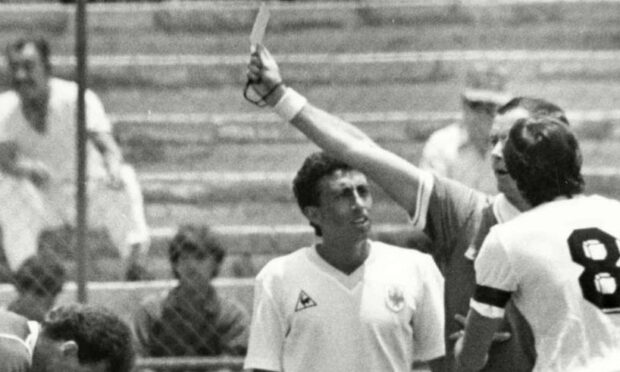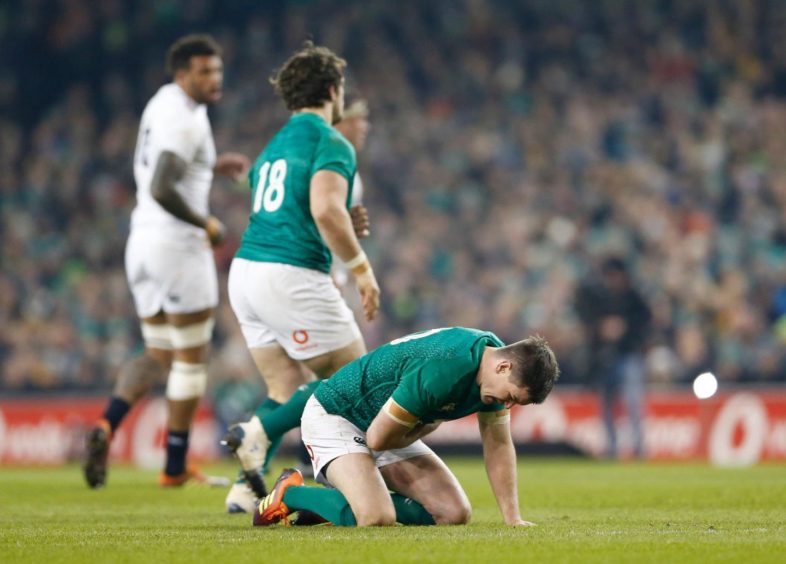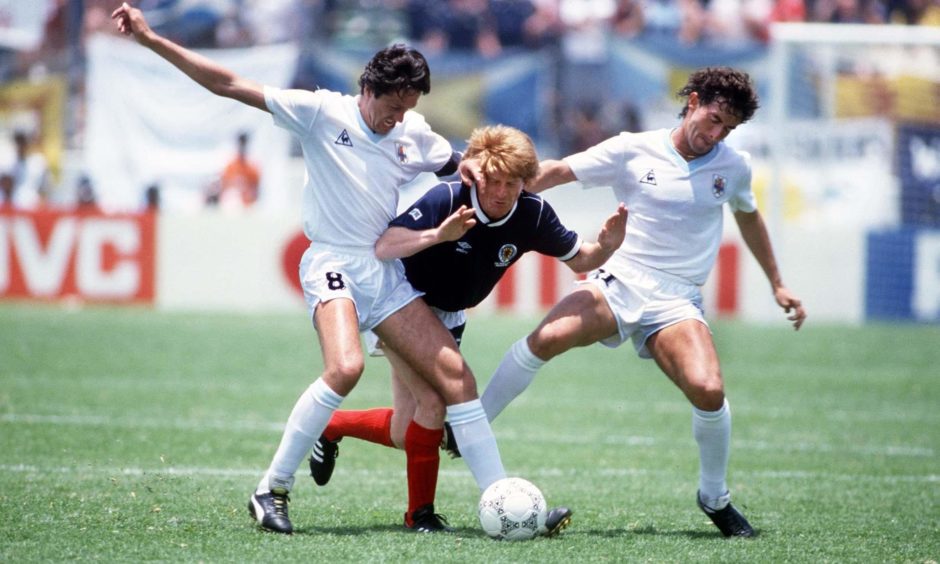It was one of the most cynical tackles ever perpetrated in football history. Uruguay’s Jose Batista has been instructed by his manager, Omar Borras, to “take care” of the dangerous little livewire, Gordon Strachan, and he followed his orders to the letter.
The proceedings had barely started in the tussle between Scotland and their South American opponents at the 1986 World Cup in Mexico – a match which Alex Ferguson’s side needed to win to progress any further in the tournament – when Batista produced a shocking challenge which provoked righteous cries of outrage from the Tartan Army.
It was just 56 seconds into the contest, but the referee, Joel Quiniou, didn’t bother about that. Straight away, he sent off Batista and, despite protests from the Uruguayans, even as a stretcher was brought on to the pitch, they were reduced to 10 men in what should have been a huge advantage to their rivals.
And yet, of course, it didn’t work out like that. Borras’ team only required a draw, so they shut up shop, hacked away like a butcher in a bad mood, were guilty of throwing their elbows into Scottish faces on more than one occasion and flagrantly wasted time the longer the contest advanced.
But, for all their appalling tactics, which were subsequently punished with a hefty fine from FIFA, and were described as the acts of “cheats and cowards” by the SFA secretary, Ernie Walker and branded “a farce and a disgrace to football” by Ferguson at a post-match press conference where he almost spontaneously combusted, they served their purpose.
Strachan, determined to play on, was clearly in distress and, for all their huffing and puffing, Scotland rarely threatened to break the deadlock and were blocked repeatedly by a wall of defenders wherever they went. Their foes might have seen red, but it was Strachan & Co who finished black and blue, as they once again exited the competition prematurely in the group stages.
I thought about that episode again while watching similar incidents in rugby and football at the weekend.
England, whose coach Eddie Jones, has urged his side to be fiercely combative at Twickenham, shouldn’t have been surprised when lock forward Charlie Ewels was dismissed with just 82 seconds on the clock after clashing heads with Ireland’s James Ryan in an attempted tackle.
It looked a pretty easy decision to me. But what came as a surprise was the response of those who rushed to social media to complain that the French referee Mathieu Raynal had “ruined the spectacle” and “spoiled the afternoon” for the crowd who had shelled out exorbitant sums for their tickets. One pundit even moaned, after 10 minutes, that the game would “just be an extended training session”, which was the opposite of what happened.
There was more of the same the following day when Motherwell’s Bevis Mugabi was sent off after only 55 seconds for a nasty studs-up lunge on Hibernian’s Josh Doig during the club’s Scottish Cup quarter-final.
No need to waste Collum inches
Once again, he couldn’t quibble with the verdict of much-maligned official Willie Collum, who would have been justified in reducing Well to nine men when Jordan Roberts wiped out Drey Wright with a challenge which was, if anything, worse than the one committed by Mugabi.
Yet, as if it had any relevance to the subject, the same witterings started about the contest being “ruined” from some people who should have known better.
As it transpired, at Twickenham and Fir Park, the biggest impact of the red cards was to galvanise those left on the pitch. England, fuelled by a terrific, testosterone-laced performance from their pack, not only orchestrated one of the great counter-offensives in recent Six Nations history, but also came mighty close to an upset as they levelled matters at 15-15 after an hour.
The Irish, who will entertain Scotland in Dublin this weekend, were left looking shellshocked for lengthy periods and, although they ultimately prevailed with a brace of late tries, their scrum was as close to collapsing as the House of Usher. It was a stirring fightback from the Jones boys and, as the strains of Swing Low swelled round the stadium, a shock seemed on the cards.
Likewise, although Hibs seemed in control of the tie, following Elias Melkersen’s two first-half goals, Joe Efford reduced the deficit and the visitors were put under sustained pressure throughout the second period.
In both cases, there was no lack of spectacle or drama, nor did the numerical advantage offer simple solutions for Ireland or Hibs.
If anything, it was they who changed their tactics and forgot the basics – which frequently happens when there’s an early dismissal. Instead of continuing to go through the phases and build up pressure, there’s a tendency to rush for the jugular.
In neither instance should the referee be blamed for their actions. A bad foul is as worthy of sanction in the first as the 80th minute and officials wouldn’t be doing their jobs if they let violent conduct go unpunished because of the time on the clock.
In the end, we were treated to thrilling tussles in both sports and hard-earned victories for the teams in green.
Sadly, the same couldn’t be said for that Scotland v Uruguay bore draw all those years ago. But then, expecting success at the World Cup really is like whistling in the dark!



